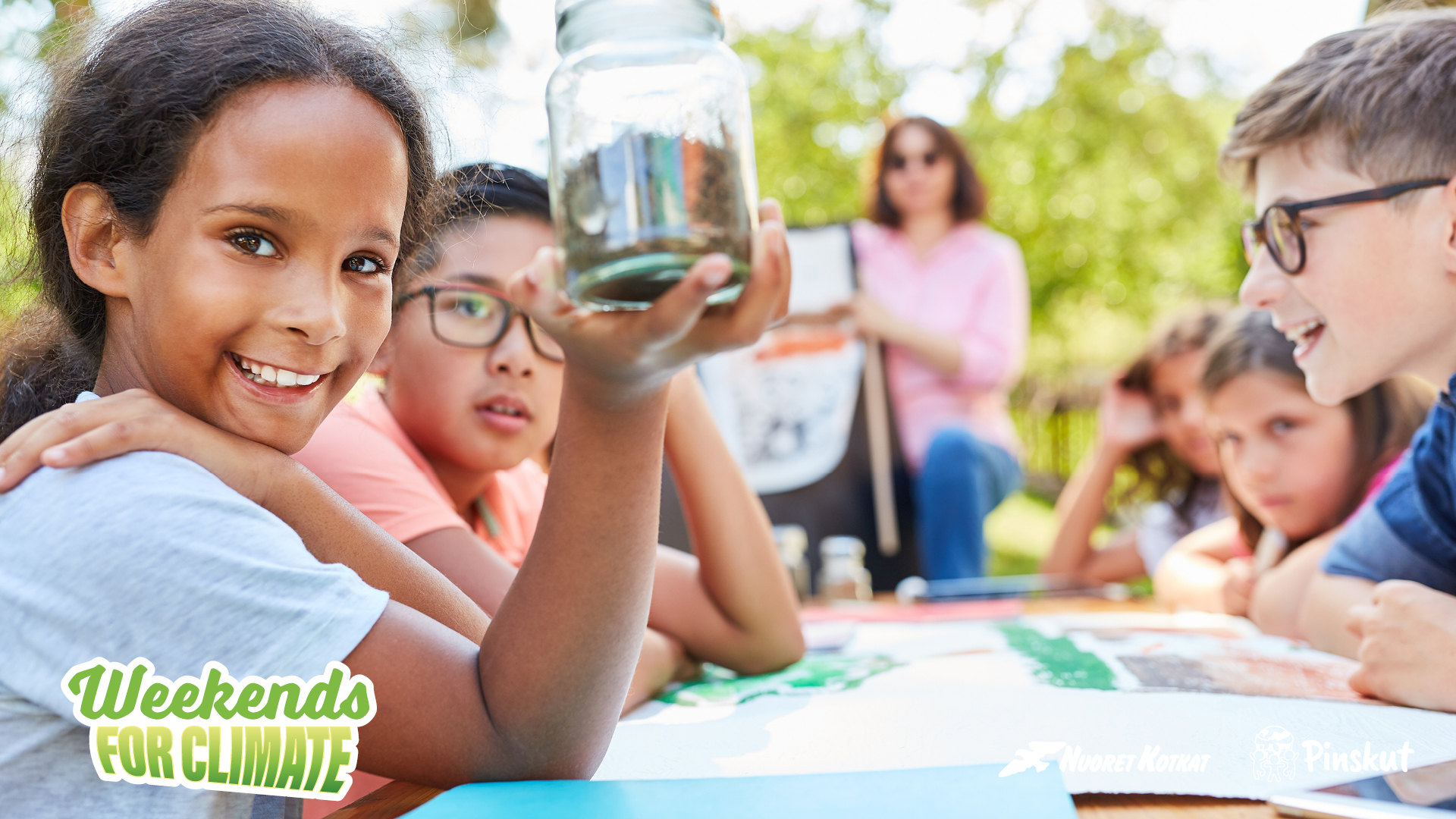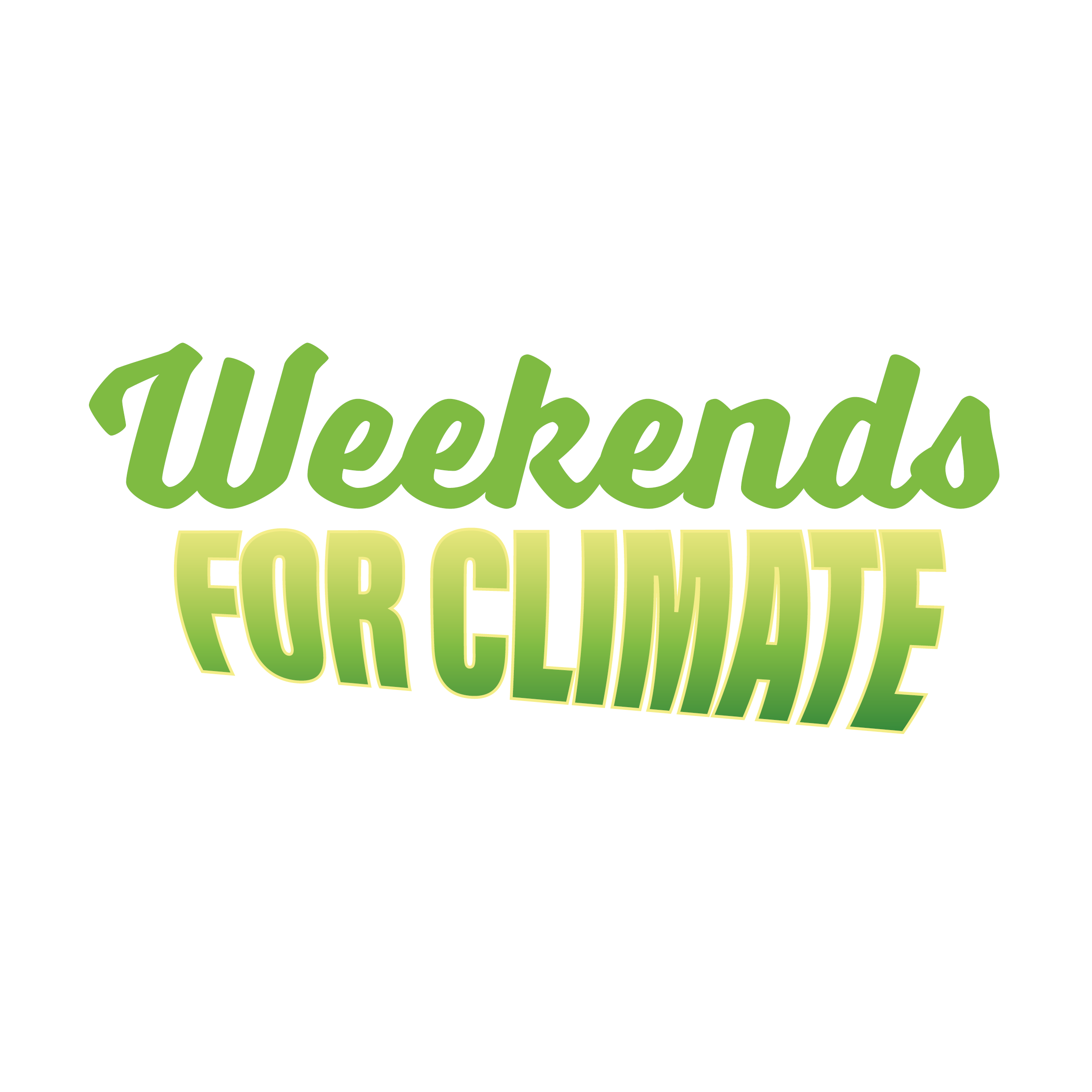 Weekends for Climate project offers climate-themed day camps for young people aged 12-15. The project also aims to provide international experiences for young people by virtually connecting youth from different countries. We organise 2-3-day day camps during weekends and holidays. In Finland, the camps will be organised in at least three different counties. In Finland, the events will be organised in collaboration with the regional organisations of Pinskut and Nuoret Kotkat. In addition, we are looking for additional partners especially from the public youth sector and we plan to organise the camps in youth spaces such as youth centres in Finland.
Weekends for Climate project offers climate-themed day camps for young people aged 12-15. The project also aims to provide international experiences for young people by virtually connecting youth from different countries. We organise 2-3-day day camps during weekends and holidays. In Finland, the camps will be organised in at least three different counties. In Finland, the events will be organised in collaboration with the regional organisations of Pinskut and Nuoret Kotkat. In addition, we are looking for additional partners especially from the public youth sector and we plan to organise the camps in youth spaces such as youth centres in Finland.
The project objective is to offer children and young people low-cost and accessible leisure activities and international possibilities while meeting the need for high-quality climate and global education. By offering climate education, the project will increase the participants’ knowledge about climate change as scientific, social, and global phenomenon. The project provides young people a safe space to process climate anxiety and other feelings related to climate change and its impacts. It will also motivate the participants by offering practical means to take action. The project will utilise the climate and environment education material created during the previous Pinskut and Nuoret Kotkat climate project called Liikkuva luontoleiri.
The international aspect of Weekends for Climate project will be executed in collaboration with the long-term international partners of Pinskut and Nuoret Kotkat. Intercultural collaboration and communication will happen by using different virtual tools and platforms. In our workshops, young people from different countries have the possibility to communicate with their peers about climate issues, a subject that concerns everybody. We will use English as the international working language while taking into account the language skills of the participants. In the national group, the working language can be the usual working language of the group. We will use global education methods in order to develop the participants’ intercultural communication and collaboration skills. Global education methods will also make these processes visible.
The day camps will be organised by using virtual communication platforms. There are two options to implement this day camp concept:
Format 1. Groups from different countries have weekend day camps at the same time and have activities partly within their own group in their own country and partly online with international partners. The working language in the joint meetings will be English. In the national group, the working language can be the usual working language of the group.
Format 2. Groups from different countries have meetings separately at different times. During their separate meetings, the young people can come up with different environmental video challenges, competitions and/or tips on how to be more environmentally/climate friendly or how to take action for the climate and then challenge the young people from other countries to do these challenges.
In the case of either of the above options, Partner Organisations are asked to film videos and make materials of the challenges and these materials can be used in project communications as well as in the following Weekends for Climate camps.
Facilitated climate discussion and joint activities with their international peers develop young people’s global and climate citizenship skills in many different ways: Sharing their climate anxiety reinforces the feeling of shared global climate concerns, which encourages young people for global solidarity and active action taking. Working towards shared climate goal emphasises intercultural cooperation and shared global interests, which is important in contemporary polarised world. In addition, intercultural cooperation provides young people possibilities to develop their communication and cooperation skills in a culturally diverse environment.
